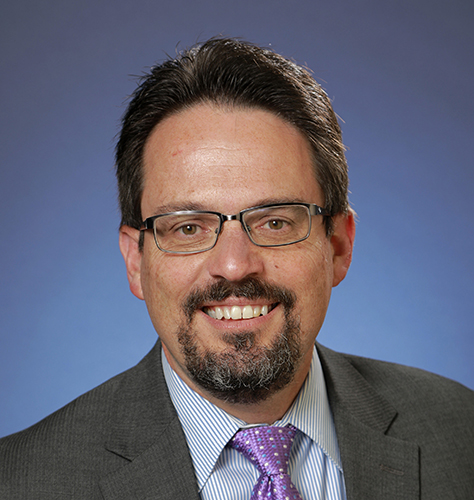Carson Tahoe Health’s Board of Directors appointed Alan Garrett as the new Chief Executive Officer…
Q & A with New CEO Alan Garrett

Donor Questions
What do you most want the community to know about you?
I have a fundamental belief that everyone should have access to quality health care and I have pledged my entire career to non-profit healthcare. I’m excited to be in Northern Nevada and serving at Carson Tahoe. CTH is an organization everyone should be proud of. It is one of the best hospitals in Nevada (don’t take my word for it, ask the federal government).
I am very family-centric and have been blessed with a best friend wife, amazing kids, and a loving and supportive extended family. I love the outdoors and in my free time, I explore and photograph natural places. I have a creative streak that pops out every now and again. I’m partial to the Angels and Bruins and may need to adopt the Wolf Pack. I hike and ski and play golf (poorly). I like movies, music, Disney, and chips with salsa
Why did you choose Carson Tahoe Health?
I want to do meaningful work. CTH had me at the mission statement. Improving the health and well-being of communities is a powerful and meaningful goal. I think it’s a liberating goal too. It doesn’t say operate the best acute hospital in Northern Nevada (although we should). It says improve health – with physician offices and partnerships, outpatient services, wellness programs, post-acute care, and the list goes on.
I will also admit that the clinical breadth of our services was also a motivator. I spent the past 28 years serving in a faith-based non-profit healthcare operation. For the past few years, I served in a community with almost no mental health care and very little cancer care. These two clinical areas are important to me on a personal level. CTH is a leader in both mental health and cancer care. So, CTH just fit. On a side note, there’s a little mountain range to the west that is a pretty big draw too. Rim trail anyone?
How do you envision the role of CTH in the community?
When I think of CTH in the community I think of five “C”s. First and foremost CTH needs to be the preeminent caregiver in the community. We need to ensure that our neighbors have access to safe, clinically appropriate care. We also need to be a companion to our neighbors, enabling them to live a healthy life as we promote holistic wellness. We need to be a collaborator in our community. There are many people and organizations doing good things in the community and we need to come along side and support them when we can. We need to be a catalyst in our community. Sometimes there are issues that still need to be solved and CTH has the size, scale, and reputation to draw attention to it and enable a response. And the last “C” is for CTH to be a champion in the community. We have a very talented group of doctors, caregivers, and leaders that call CTH home. Sometimes we should lead efforts for the common good.
What kind of plans do you have for the rural communities, i.e. providers traveling to different locations for appointments (or possibly telehealth), especially for the aging population?
I am a believer in digitally-enabled health care and an advocate for community-based care. I can see a day when house calls are back in fashion. It won’t be Marcus Welby and his black bag at your door. It may be more like Dr. Crusher (for the Star Trek fans) and a bunch of computer gizmos. In the community I served before coming to CTH we had two mobile health vans working every day to bring care to rural areas. We used WiFi-enabled devices to collect patient vital signs remotely. We used telemedicine to connect to specialists hundreds of miles away. We used “pop up” clinics to bring economical care to underserved areas. Some of these ideas may work in Northern Nevada, some may not. Perhaps the best answer is that deep understanding and innovation can improve access to healthcare.
What are your plans to improve access to mental health services in our region?
This is a tough question for Day 22 of my tenure at CTH. It’s a difficult question for all of America. My initial impressions are that any solution involves collaboration with others. CTH cannot solve the access problem alone.
Mental health “first aid” in schools and churches has proven to be one effective improvement in other communities. Tele-medicine can be a tremendous help in doctor’s offices and emergency rooms. Integrating psychiatrists into primary care offices has also been shown to improve access. Embedding resources into law enforcement can make an officer’s jobs easier and access better.
Insight will come with dialogue and learning. One thing that is certain is we can all advocate for greater recognition of the behavioral health issues in our community and the need for additional funding to improve mental health care.
Do you like reading about new initiatives and happenings at Carson Tahoe Health? Would you like a pick-me-up filled with happy stories about giving, community, and hope? Sign-up here to receive CTH Foundation’s Dose of Hope newsletter!



